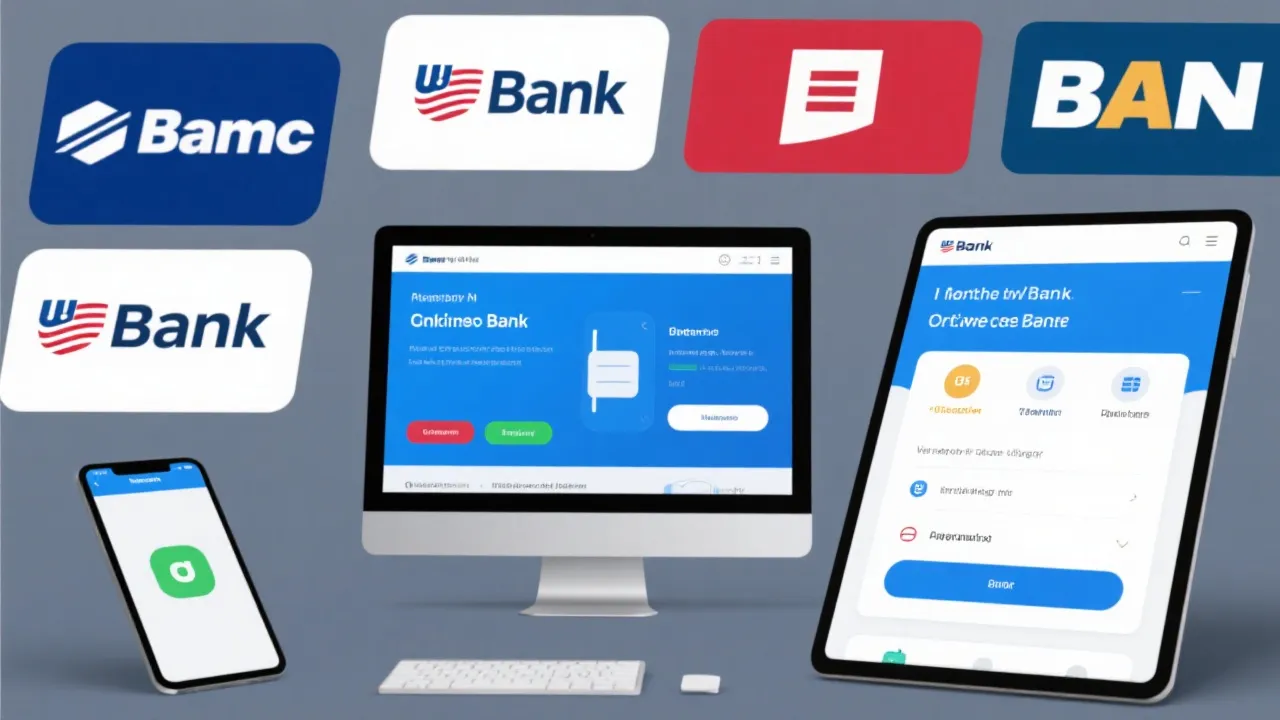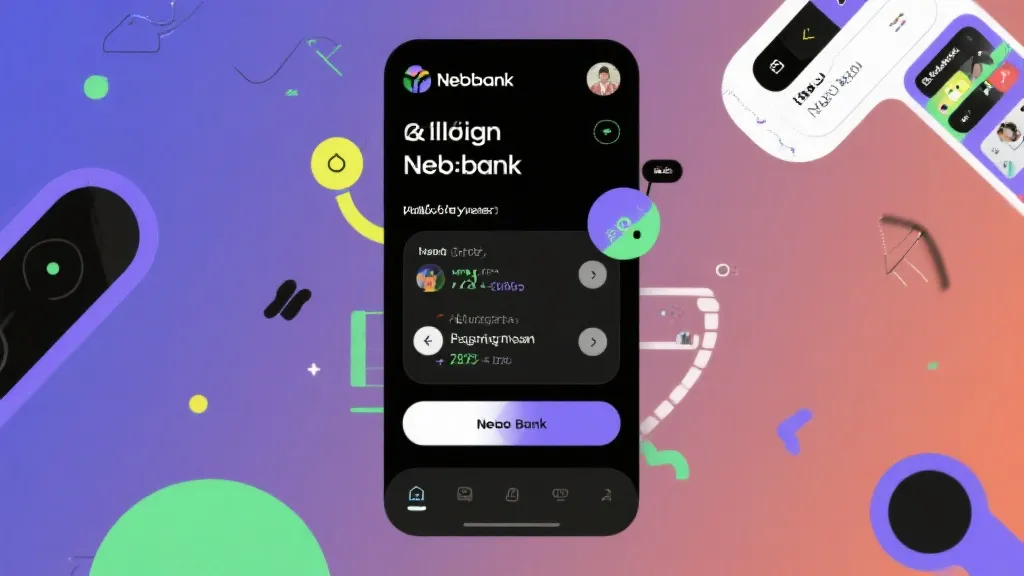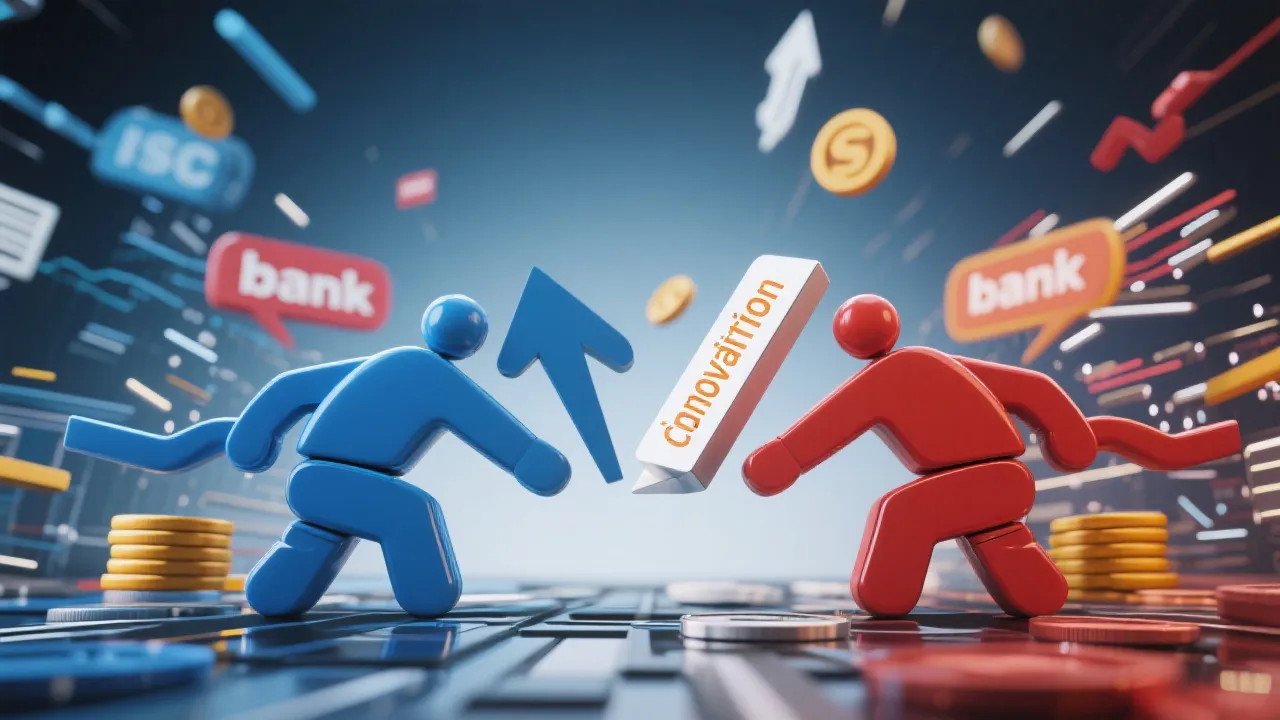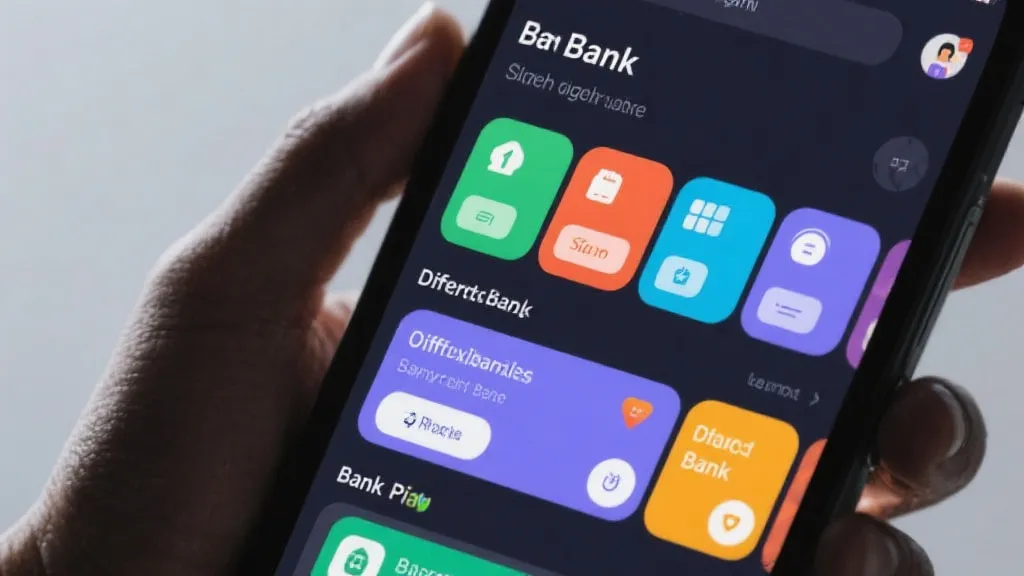This article evaluates prominent online banking competitors, discussing their features, bonuses, and customer offerings. Online banking has transformed the finance sector by providing accessible and convenient banking solutions. Webbanks face stiff competition from established financial institutions that offer online account services with enticing bonuses. This analysis explores how major banks such as Bank of America, Chase, and Citibank, among others, stand their ground in this competitive landscape.

In recent years, the financial sector has witnessed a significant shift towards digitalization, with online banking becoming a pivotal element of modern finance. As webbanks persistently rise in popularity, understanding their competitors becomes crucial for addressing market demands and customer expectations. This article delves into the primary competitors of webbanks, providing a detailed analysis of their offers, including account types, bonus conditions, and bonus amounts. The landscape of online banking is not static; it is dynamic, evolving to meet the needs of tech-savvy consumers who prioritize convenience, efficiency, and value.
Several banks have emerged as formidable competitors to online-only webbanks, offering both comprehensive financial services and competitive bonus incentives:
| Bank Name | Bonus Condition | Bonus Amount |
|---|---|---|
| Bank of America | Deposit a minimum of $2,000 via direct deposit within 90 days. | $200 |
| Chase Bank | Make at least one direct deposit of any amount within 90 days. | $300 |
| Citibank | Complete two direct deposits totaling $6,000 or more within 90 days. | $450 |
| Wells Fargo | Deposit a total of $1,000 via direct deposits within 90 days. | $300 |
| SoFi Bank | Deposit $1,000 for a $50 bonus or $5,000 for a $300 bonus in direct deposits. | $50 - $300 |
| Capital One Bank | Utilize promo code REWARD250; make two $500+ direct deposits within 75 days. | $250 |
Source: Please refer to each bank’s official website listed below for more information and to confirm the latest details.
Understanding the bonus requirements and benefits offered by these banks provides insights into their competitive strategies:
Bank of America's Personal Checking Account requires a user to deposit a minimum of $2,000 in direct deposits within 90 days to qualify for a $200 bonus. This bonus serves as an attractive incentive for individuals looking to switch or begin new accounts. The account also offers other features such as online and mobile banking, which enable customers to track their spending, transfer money between accounts, and even access their funds through Zelle for quick payments.
Chase Bank offers a Total Checking Account with a straightforward bonus requirement: complete a single direct deposit of any amount within 90 days to earn a $300 bonus. This requirement's simplicity may appeal to customers seeking an easy way to benefit from account opening bonuses. Additionally, Chase provides extensive ATM access with over 16,000 ATMs across the country and a user-friendly mobile app to manage finances on the go.
For those with larger financial dealings, Citibank's Regular Checking Account requires two direct deposits totaling $6,000 or more within 90 days for a substantial $450 bonus. This attractive offer aims at gaining a customer base with considerable transaction volumes. Citibank also brings a solid suite of mobile banking tools, including bill pay, account alerts, and seamless international banking services, catering well to frequent travelers and expatriates.
Wells Fargo's Everyday Checking Account necessitates a total of $1,000 in direct deposits within 90 days for a $300 bonus. This condition can appeal to customers looking for a balance between moderate direct deposit requirements and significant bonuses. Additionally, Wells Fargo emphasizes community banking and personalized service, providing customers with financial education resources and locally based advisors to assist with personal finances.
With a focus on flexibility, SoFi Bank presents a tiered system: customers can deposit $1,000 to receive a $50 bonus or aim higher for a $300 bonus by depositing $5,000. This tiered incentive caters to both small-scale and larger-scale depositors. SoFi distinguishes itself by not charging account fees, and it provides a suite of financial products including loans and investment options, making it a one-stop shop for many customers.
The 360 Checking Account from Capital One offers a $250 bonus when users apply the promo code REWARD250 and make two separate direct deposits of $500 or more within 75 days. This offer targets those who prefer a middle ground in terms of deposit requirements. Notably, Capital One extends the ease of digital banking, focusing on a mobile-first experience with tools that help customers monitor their spending and savings.
The emergence of online banks has transformed the financial landscape, often positioning them as more appealing options compared to traditional banks. Several factors contribute to this shift:
Online banks typically operate with lower overhead costs than traditional banks. This efficiency allows them to offer higher interest rates on savings accounts and lower fees overall. Traditional banks, with their brick-and-mortar locations and larger staffing needs, often pass those costs onto their customers in the form of higher account maintenance fees or lower interest rates.
Online banks provide 24/7 access to banking services through mobile apps and websites. Customers can check balances, transfer funds, and deposit checks at their convenience without needing to visit a branch. This level of access suits the on-the-go lifestyle of many customers today, particularly younger generations who prioritize mobile banking solutions.
Online banks tend to innovate more rapidly, offering features such as AI-driven financial advisors, expense tracking, and personalized savings goals. They often embrace fintech advancements faster than traditional banks, providing tools that enhance the user experience and financial management capabilities.
While some claim that online banks may lack the personal touch offered by traditional bank branches, most online banks compensate through enhanced digital support options. Live chat, dedicated support hotlines, and robust FAQs are common features, ensuring customers receive support quickly and efficiently. Moreover, the shift to digital communication has often proven to be more convenient for users.
Security is a paramount concern in online banking, with most banks investing heavily in safeguarding customer data. Online banks utilize encryption, two-factor authentication, and regular system audits to protect users against breaches, making them as secure as traditional banks, if not more so due to their more modern systems.
Looking ahead, the landscape of online banking is poised for continued growth and innovation. With the increasing integration of technology in finance, online banks will likely expand their product offerings and streamline existing processes. The potential adoption of blockchain technology, for example, could enhance transaction efficiency and further secure customer data.
As digital banking evolves, regulations will need to adapt. Governments and financial authorities may impose new compliance requirements aimed at ensuring customer protection in an era of increasing cybersecurity threats. This evolving regulatory environment could reshape how online banks operate and compete moving forward.
Alongside technological advancements, there is a growing consumer expectation for sustainability and ethical banking practices. Many online banks are adopting eco-friendly policies, such as paperless statements and carbon-neutral operations, to attract environmentally conscious customers. Companies that align their practices with these values may enjoy a competitive edge in attracting today's socially aware consumers.
As data analytics evolve, online banks will have greater capabilities to offer personalized services. By analyzing customer behavior and preferences, banks can tailor product offerings, bonuses, and financial advice, ultimately improving customer satisfaction and retention. Personalization is becoming more critical in a crowded market, allowing online banks to stand out by providing tailored experiences that resonate with individual customers.
Collaborations between traditional banks and fintech startups are already pushing the envelope in terms of the creative solutions offered in the banking space. These partnerships could lead to the development of innovative financial products that integrate features from both sectors. Online banks may benefit significantly from such collaborations, gaining access to cutting-edge technology and new customer segments.
The use of artificial intelligence (AI) in banking is likely to increase. Banks are starting to leverage AI for tasks such as fraud detection, customer service chatbots, and even investment recommendations. This technology can allow online banks to respond faster to customer needs and improve both security and user experience. As AI improves, customers can expect more proactive banking solutions, ultimately leading to higher satisfaction levels.
The competitive arena of online banking is populated with strong contenders, each offering unique combinations of bonuses and account features. Customers have myriad options, each catering to different financial needs and transaction volumes. As always, these offers symbolize just a fragment of what's available, with individual circumstances greatly influencing the top choice in terms of online banking services. The trajectory of online banking suggests continued evolution and improvement, with banks striving to meet the changing expectations of consumers.
Consider factors such as service fees, customer support availability, financial stability, digital experience, and any available account bonuses or benefits that align with your financial practices. Understanding each bank's particular strengths can help make a wiser choice.
Yes, typically, all bonuses from bank offers are considered taxable income. It's advisable to consult a tax professional to understand implications based on your financial situation. Being informed about tax responsibilities can prevent surprises come filing time.
With advancements in technology, online banking is generally as safe as traditional bank services. Always ensure your bank uses strong security measures like encryption, real-time fraud detection, and offers robust customer support for any concerns. Choosing a bank that prioritizes security can significantly enhance your peace of mind.
Most online banking services can be accessed internationally, provided you have an internet connection. However, it's essential to check for any specific restrictions or fees associated with accessing your accounts while abroad. Knowing your bank's international policies will ensure smooth transactions when traveling.
Online banks often provide a range of accounts, including checking accounts, savings accounts, money market accounts, and even certificate accounts. Some might also offer investment accounts or personal loans, allowing customers to manage a variety of financial services under one roof.
The above information is gathered from online resources and reflects data as of October 2023. Variations may occur over time and by region. It is recommended to verify with official bank websites or customer support for the very accurate and current information before opening an account. Certain rewards may only be accessible within specific regions or subject to other limitations. By being informed and vigilant, consumers can maximize their banking experience and ensure they make the most of available offers.
Understanding Sme Neobank Impact

Exploring Webbank and Its Competitors

Discover Westminster Plaza Orlando

Discover Heartis Eagle Mountain Elegance

Westminster Plaza Orlando: A Comprehensive Guide

Transforming Banking with Sme Neobank

Discovering Westminster Plaza Orlando

Discovering Westminster Plaza Orlando

Life Insurance for Seniors: Maximizing Coverage and Benefits
